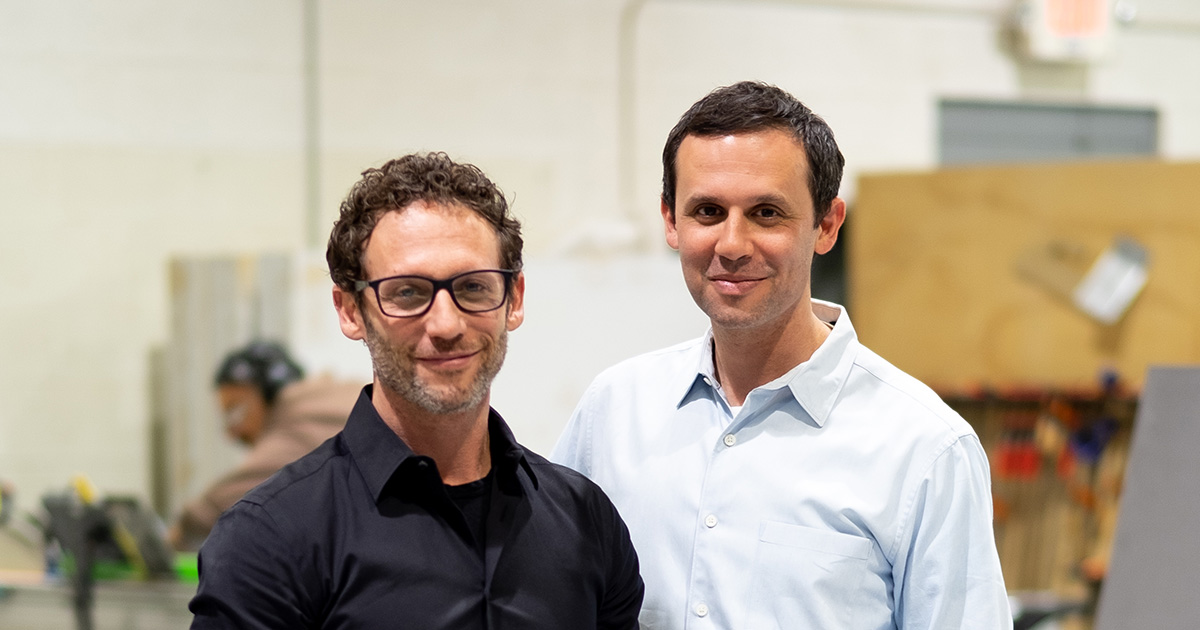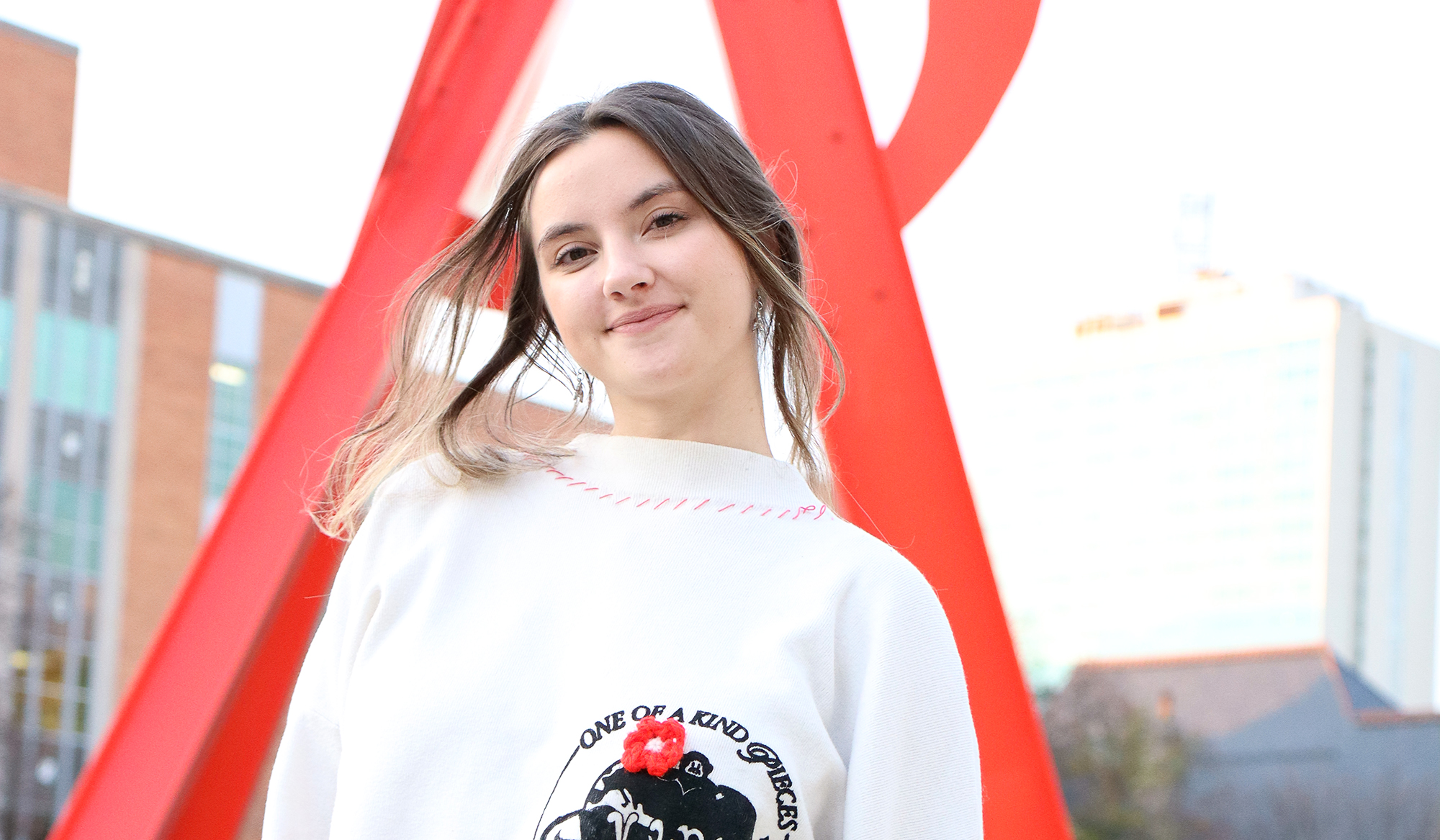Whether shoveling snow or selling baseball cards, Long Island, New York-bred brothers Noah, ’95, and Ethan Kaplan, ’97, MBA’07, perpetually had some business venture percolating as youths as well as imaginative bents that powered creative efforts in art, writing, and music.
Today, the Kaplan brothers blend their entrepreneurial and artistic sides as the fraternal force behind Leon Speakers, one of the world’s foremost producers of custom audio products. Boasting a network of some 1,500 U.S. dealers and more than 60 employees, many of them housed at the company’s 40,000-square-foot home in Ann Arbor, Leon’s A-list clients include the likes of Apple, Spotify, and JPMorgan Chase.
The Kaplan brothers recently reflected on their time at U-M and their entrepreneurial journey in offering the following advice.
Prioritize action. In 1995, Noah and his original partners—all recent U-M alums—launched Leon from an East University Avenue house with $600 and plans to build “something.” While the trio tried constructing guitars, they shifted to audio products when guitars proved too difficult. “Plus, speakers were boring, and we were convinced we could make speakers new and modern,” Noah says. Leon’s first custom-made speaker installation was at Ann Arbor’s famed Zingerman’s Deli.
Let your heart lead you. After a five-year trek as a musician after graduation, Ethan founded a boutique design and advertising firm called Emuse. While he enjoyed the creative endeavors, he found himself increasingly gravitating to the strategic and marketing side of the business, an admittedly unexpected turn for the undergraduate who spent six disconnected weeks in New Hampshire replicating Thoreau’s Walden Pond existence. “I got fired up about entrepreneurship and wanted to apply what I was learning to a growing company,” says Ethan, who joined Leon after earning his MBA.
Open your eyes. Betting on the emergence of flat-screen televisions, Leon centered its work on bringing high-fidelity sound to that blossoming marketplace. That sparked the introduction of the sound bar, a solution that balanced audio and design. “We really pushed the business more into design and focused on the furnishings that go around a TV to create something more artistic and interesting,” Noah says.
Find a mentor. As an art student, Noah found an inspiring mentor in adjunct professor Mingshi Huang, MFA’91. A trained academic artist from China, Huang stressed the importance of drawing upon a broader wealth of knowledge—the human muscular system or bone construction, for instance—when creating. That philosophy fueled Noah’s efforts at Leon. “If I was going to build speakers that were interactive and connected, then I needed to know the history of audio and furnishings first,” he says. “I needed to immerse myself in knowledge.”
Take a self-inventory. At his core, Noah is an artist “accustomed to doing.” Leading Leon, however, has forced him to communicate his vision to a growing team, listen, and, most importantly, reflect on his own shortcomings. “I’ve become good at knowing what I don’t know, and that’s helped us grow,” he says.
Engage. U-M claims a diverse array of people and resources that can propel one’s future, Ethan reminds. “So, book recording time in a music studio or work in the medical labs,” he says. “If you forgo these resources and overlook the opportunity to interact with others, you’re missing out.”
Daniel P. Smith is a Chicago-based journalist. In previous issues of Michigan Alumnus magazine, he has profiled U-M alumni entrepreneurs such as Five Guys Burgers and Fries founder Jerry Murrell and business mogul Sam Zell.





